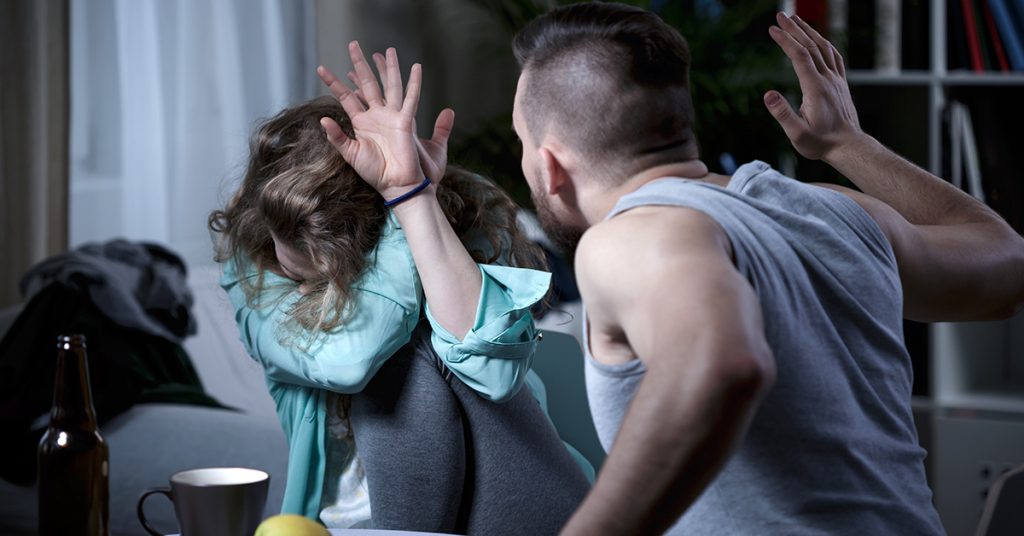SERVICES
What Are the Penalties for Federal Crimes and How Do They Differ from State Level Charges?

If you are facing accusations of a federal crime, it can be extremely confusing and stressful. There are a few key differences to know if you are being charged on both a state and federal level or only a federal level. In this article, a federal criminal defense attorney in St. Petersburg with The Rickman Law Firm shares the key differences between federal and state charges and what the possible penalties for federal crimes are if convicted.
Related: Understanding the Differences Between Federal and State Crimes
How Will You Know If You are Under Federal Investigation?
Federal investigations are often done in secret until charges are brought forth, which means the government may have built a case against you before you are even aware. A person may find out that they are being investigated when they are met by a federal agent requesting that they answer questions or are blindsided by multiple agents executing a warrant. If you are confronted by a federal agent or investigator, it’s important that you talk to an experienced attorney before making any statements. Remember, even if it is a federal investigation, you have the right to remain silent and to wait to speak to your attorney before answering questions.
Related: What You Should and Shouldn’t Do When Under Federal Investigation
Common Penalties for Federal Crimes
The penalties for federal crimes differ based on the charge. However, there are a few penalties that are common among federal crimes as a whole. State crimes may allow you to serve less time in prison or jail; however, in federal court, you will have to serve 85 percent of your sentence if convicted of federal charges. For example, if you are sentenced to 10 years, you will have to serve at least 8.5.
If you are convicted of a federal crime, you may also have to serve your sentence in a federal prison rather than a state-run facility and face monetary fines and restitution, depending on the type of crime.
How Do Federal Crimes Differ from State Crimes?
Crimes charged at the state level involve local statutes. However, federal crimes may be more serious in nature. In some instances, federal charges are tacked onto state charges due to the use of federal property to commit the crime, like cases of mail fraud. Further, some felonies may result in both state and federal charges, such as drug trafficking.
If you are facing a federal charge, indictment by a grand jury, or investigation, contact a federal criminal defense attorney in St. Petersburg with The Rickman Law Firm to discuss the best defense for your specific case. It’s crucial that you speak with an attorney before speaking with any investigators in order to protect yourself from unfair charges. A free consultation with Anthony Rickman is just a phone call away.
For a free consultation with the best federal criminal defense lawyer in St. Petersburg, please contact The Rickman Law Firm today.
Disclaimer: The information contained in this article is for general educational information only. This information does not constitute legal advice, is not intended to constitute legal advice, nor should it be relied upon as legal advice for your specific factual pattern or situation.
Most Common Drug Charges in Florida

In 2018, over 134,000 Floridians faced drug charges, according to recent reports. Since 2018, it’s estimated that the number has grown, with males facing drug charges at a higher rate than females. There are several types of drug charges one can face; however, there are a few that are fairly common in Florida. In this article, a drug defense attorney in Tampa with The Rickman Law Firm discusses the most common drug charges in Florida and what to do if you have been arrested and charged with a drug-related crime.
Drug Possession
In the state of Florida, drug possession is an offense by a person who did not manufacture, distribute, or sell a controlled substance and only held the substance for personal use. It’s fairly straightforward and exactly what it sounds like — being caught with drugs on your person or property that were likely intended for personal use rather than selling. There are certain instances when drug possession of a very small amount results in a fine rather than an arrest and drug charge; however, that varies by city or county. Higher amounts of drugs in possession may result in more serious penalties.
Drug Trafficking
Drug trafficking is the crime of manufacturing, transporting, selling, or distributing illegal drugs, such as heroin, cocaine, marijuana, PCP, LSD, or other illegal drugs. A prosecutor must show that a defendant was involved in the sale, transport, or import of drugs and that the defendant intended to sell or deliver the drugs to win a conviction. If the charges include trafficking drugs across state lines, it may become a federal crime, for which the penalties may be more serious. Similar to drug possession, charges may result in serious jail time and fines if there are higher amounts of drugs in question.
In the federal legal context, a drug trafficking crime is defined as “an offense under federal, state, or local law that prohibits the manufacture, import, export, distribution, or dispensing of a controlled substance (or a counterfeit substance) or the possession of a controlled substance (or a counterfeit substance) with intent to manufacture, import, export, distribute, or dispense.”
Although the perception is that these laws are designed to prevent drug trafficking activities involving the transportation of large amounts of controlled substances into the state, you don’t need to actually be selling or transporting an illegal drug to be charged. In other words, you could simply have too much of a controlled substance in your possession to be classified as for “personal use,” which is considered “intent to distribute.” If you are facing any drug-related charge, contact a drug defense lawyer in Tampa with The Rickman Law Firm to discuss the best defense for your specific case. A free consultation with Anthony Rickman is just a phone call away.
For a free consultation with a drug defense lawyer in Tampa, please contact The Rickman Law Firm today.
Disclaimer: The information contained in this article is for general educational information only. This information does not constitute legal advice, is not intended to constitute legal advice, nor should it be relied upon as legal advice for your specific factual pattern or situation.
Is It Illegal to Accidentally Download Child Pornography Due to Misrepresentation on Websites?

Popular pornographic websites have recently made headlines because of allegations of illegal content, including child pornography. The allegations resulted in credit card companies pulling their contracts and increased fear over content from unverified users. Visitors to the websites in question may also face charges for viewing or downloading illicit imagery of minors — but is it illegal if it was misrepresented, and can those who thought they were downloading legal videos be accused of a crime? A child pornography attorney in Tampa shares what you need to know if you are concerned about accusations of child pornography.
Related: What To Do If You are Accused of Having Child Pornography
What Is Child Pornography?
Child pornography is both a state and federal crime and is one of the most serious crimes a person can face. As defined by the Florida Department of Law Enforcement (FDLE), child pornography means “any image depicting a minor engaged in sexual conduct,” including photographs, videos, and computer files, among other forms of content involving a person under the age of 18 engaged in any form of sexual conduct.
Florida Statute 827.071 defines sexual conduct as “actual or simulated sexual intercourse, deviate sexual intercourse, sexual bestiality, masturbation, or sadomasochistic abuse; actual lewd exhibition of the genitals; actual physical contact with a person’s clothed or unclothed genitals, pubic area, buttocks, or, if such person is a female, breast, with the intent to arouse or gratify the sexual desire of either party; or any act or conduct which constitutes sexual battery or simulates that sexual battery is being or will be committed.” Children photographed either nude or partially nude in a manner that doesn’t fit the definition of “sexual conduct” is not illegal. This type of content is referred to as “child erotica.”
Can You Face Trouble for the Accidental Download of Child Pornography?
Having only one photo on your computer that is deemed child pornography is a violation of the law. Photos, images, or videos that have been deleted from your computer may be recovered and used against you in a criminal case. But what if you thought you were downloading legal depictions of a consenting adult over the age of 18 only to later discover that it was a minor?
This is more of a legal grey area. You must be able to prove that you were in pursuit of legal pornography. Further, you should speak with a criminal defense lawyer in Tampa to discuss the best strategy for defense, even if you feel you are innocent.
Possession, distribution, transmission, or manufacturing of child pornography is a serious felony offense in Florida and possibly in our Federal Court System. Convictions on charges of possession of child pornography when you are in possession of fewer than 10 images is a third-degree felony, which is punishable up to 5 years in prison as well as fines not exceeding $5,000. If you are convicted of having more than 10 images, you could be charged with a second-degree felony with a possible sentence of up to 15 years in prison with fines of up to $10,000. Any person convicted of child pornography or related sex crimes charge like child molestation or statutory rape must also register in the Florida Sex Offender Database.
What to Do If Accused of Possessing Child Pornography
There are several defenses that a child pornography attorney in Tampa can mount to fight your case. A defense attorney can attempt to prove that:
- You came into possession of child pornography while engaging in the legal pursuit of adult pornography.
- Your computer was hacked, or another person came into possession of your computer.
- The content found on your computer was not sexually explicit. Even if the minor was nude, he or she may not have been engaged in a sexual act.
If you have been accused of downloading or possessing child pornography, contact The Rickman Law Firm to discuss the best defense for your specific case. A free consultation with Anthony Rickman is just a phone call away.
For a free consultation with a criminal defense law firm in Tampa,please contact The Rickman Law Firm today.
Disclaimer: The information contained in this article is for general educational information only. This information does not constitute legal advice, is not intended to constitute legal advice, nor should it be relied upon as legal advice for your specific factual pattern or situation.
Aggravated Assault Charges: How to Prevent Situations from Boiling Over and How to Handle If They Do

2020 has been a stressful time. With mounting financial issues, workplace confrontations, and other stressors, instances of crime and aggravated assault have been on the rise since the pandemic began. In this article, an aggravated assault attorney in St. Petersburg with The Rickman Law Firm shares tips to prevent aggravated assault during times of high stress, and how to handle it if these stressful situations boil over and become criminal charges.
Related: What to Do When a Criminal Attempt Leads to an Aggravated Assault Charge
What is Aggravated Assault?
Aggravated assault is defined as an assault with a deadly weapon without intent to kill or with intent to commit a felony. A deadly weapon does not necessarily have to be a knife or a gun. In fact, in Loninger v. State, 846 So. 2d 1192 (Fla. 4th DCA 2003), the use of a beer bottle to strike a victim on the head was regarded as the use of a “deadly weapon.”
Remember: assault is the threat of violence, not the act itself. Even a simple threat during a heated argument can result in aggravated assault charges. In these instances, it’s critical to contact the best aggravated assault lawyer in St. Petersburg.
Related: Aggravated Assault: What Could Be Considered a Deadly Weapon?
Tips to Prevent Altercations
Before a heated argument becomes an aggravated assault, there are a few things you can do to protect yourself, including:
- Take a breath and count to 10 before making any threats or continuing to argue.
- Limit intake of alcohol or drugs during potentially stressful situations.
- If you feel yourself becoming upset, avoid touching any weapons while arguing (for example, if you carry a pocketknife, avoid touching it during an argument to prevent the perception of threat.)
What to Do If Accused of Aggravated Assault
Aggravated assault is a felony of the third degree with penalties, such as five years of imprisonment, five years of probation, or a $5,000 fine. These penalties do not account for the additional lost wages and lost time spent dealing with aggravated assault charges in court if you do not have the best legal representation available.
Accusations of aggravated assault should be taken seriously. If you have been blindsided by an aggravated assault charge, you are not without options. Depending on the specifics of your case, an aggravated assault attorney in St. Petersburg can build a strong defense that includes proving your innocence, demonstrating that your constitutional rights were violated, or arguing that the case lacks evidence or a reliable witness, among other strategies. When defending an aggravated assault charge, the details involved in the case are extremely important and relying on a public defender can result in less time being spent fully investigating your defense strategy. To ensure that you are properly defended, contact the best aggravated assault lawyer in St. Petersburg with The Rickman Law Firm to handle your case.
For a free consultation with the best aggravated assault lawyer in St. Petersburg, please contact The Rickman Law Firm today.
Disclaimer: The information contained in this article is for general educational information only. This information does not constitute legal advice, is not intended to constitute legal advice, nor should it be relied upon as legal advice for your specific factual pattern or situation.
Defenses Against Robbery and Burglary

The charges of robbery and burglary are very serious in the State of Florida. These terms are often used interchangeably, despite their differences, but carry similar penalties and similar defense methods. In this brief article, a robbery defense attorney in Tampa with The Rickman Law Firm shares the quick definitions of robbery and burglary, as well as possible defenses for both.
Related: What Is the Difference Between Larceny, Petit Theft, and Burglary or Robbery?
Quick Definitions of Burglary and Robbery
Burglary, by definition, is unlawfully entering a dwelling, structure, or conveyance with the intent to commit a crime inside; or the lawful entry into a dwelling, structure, or conveyance, but then remaining inside either with the intent to commit a crime; or after permission to remain has been withdrawn, with the intent to commit a crime inside; or with the intent to commit a forcible felony.
The biggest difference between robbery and burglary boils down to violence. Under Florida Statute 812.13(1), the term “robbery” means “the taking of money or other property which may be the subject of larceny from the person or custody of another, with intent to either permanently or temporarily deprive the person or the owner of the money or other property, when in the course of the taking there is the use of force, violence, assault, or putting in fear.”
Related: What Are the Elements of Robbery?
Possible Punishments for Robbery or Burglary
Florida’s Criminal Punishment Code clarifies the level and severity of robbery and burglary and the penalties that may be inflicted, including up to 15 years in prison, 15 years of probation, and a fine up to $10,000 for robbery in the second degree. The punishment for robbery and burglary in the first degree is imprisonment for a term of years to be determined by the judge after reviewing the circumstances of the case. Burglary with Assault or Battery is also a first-degree felony punishable by up to life in prison.
Defenses for Burglary or Robbery
If you have been arrested for or accused of burglary or robbery, you could have multiple defenses available to you. As often as accusations are made, it can be incredibly difficult for the accuser to provide evidence or evidence of intent. A skilled attorney can attack the State’s lack of evidence, such as eyewitness identification, fingerprints, or DNA, to establish that the charge cannot be proven.
A common defense is that the person accused of the crime did not commit nor assist in the burglary or robbery but was charged because a friend or family member entered a dwelling, structure, or conveyance without the knowledge of the other that they did not have permission to do so. In these cases, simply being a bystander is not a crime.
Finally, in order to be convicted of burglary or robbery, the state is required to prove the person accused had the intent to commit a crime. Therefore, a lack of criminal intent is also a defense. Further, if the accusation of robbery is due to a threat, it becomes a game of “he-said, she-said,” which can be hard to prove. If you have been accused of robbery or burglary, contact a burglary defense lawyer in Tampa withThe Rickman Law Firm to discuss the best defense for your specific case. A free consultation with Anthony Rickman is just a phone call away.
For a free consultation with a burglary defense lawyer in Tampa, please contact The Rickman Law Firm today.
Disclaimer: The information contained in this article is for general educational information only. This information does not constitute legal advice, is not intended to constitute legal advice, nor should it be relied upon as legal advice for your specific factual pattern or situation.
3 Most Common Types of Fraud in Florida

According to a recent study, fraud is among the top most common crimes in the United States, with over 14 million victims of fraud each year. Nationally, two-thirds of Americans have been victims of fraud, and a report released by the Federal Trade Commission (FTC) found that the Sunshine State led the way when it comes to scams, showing 1.4 million Floridians lost more than $84 million to fraudulent activity last year. Among the top 50 metropolitan areas surveyed in the study, the Tampa Bay area ranked 14 in overall fraud with 22,683 complaints filed.
There are several types of fraud, but there are a few that stand out as the most common in Florida. If you have been accused of fraud, it is crucial to hire a fraud defense lawyer in Tampa with The Rickman Law Firm. In this brief article, an experienced fraud defense lawyer shares three of the most common types of fraud that take place in Florida.
Identity Theft
Florida ranked number four in the nation for identity theft, according to a recent study. This constitutes a major number of accusations of fraud in the state as a whole. Identity theft occurs when someone steals the identity and credentials of another person. This can be taking someone’s identity online but is more likely the case of stolen funds through stolen information and posing as the other person. A case of identity theft can be challenging to prove unless a paper trail makes it clear. Even so, it’s a crime that the general public is especially concerned with. This can make finding a sympathetic jury extremely challenging.
Related: Identity Theft: What You Should Know if You’ve Been Accused of Stealing Someone’s Identity
Racketeering
If you’ve seen a mafia movie, you are probably familiar with the term racketeering. Racketeering is a type of fraud that’s frequently seen in pop culture because it’s often committed by criminal organizations. Racketeering occurs when an organization creates a problem and extorts money to offer a solution. Racketeering is still a major concern since it is a relatively easy form of fraud to use to prey upon businesses. For defense against racketeering charges, it’s imperative that you hire a fraud defense lawyer in Tampa as early on in the process as possible.
Ponzi Schemes and Business-Related Scams
Business-related scams and white-collar crimes like Ponzi schemes are fairly common in Florida. A Ponzi scheme is a type of investment fraud wherein an investor is offered a high rate of return with little risk on an unregistered investment. The scheme involves the orchestrator taking the new investor’s money to pay off previous investors while keeping the rest. Business-related scams like online-buying scams or job opportunity scams are also fairly common in Florida. These scams offer a job or product in exchange for an investment. This is highly illegal but ultimately more difficult to prove.
If you have been accused of any type of fraud in Florida, a white collar defense attorney in Tampa with The Rickman Law Firm can help discuss the best defense possible. A free consultation with Anthony Rickman is just a phone call away.
For a free consultation with a white collar defense attorney in Tampa,please contact The Rickman Law Firm today.
Disclaimer: The information contained in this article is for general educational information only. This information does not constitute legal advice, is not intended to constitute legal advice, nor should it be relied upon as legal advice for your specific factual pattern or situation.